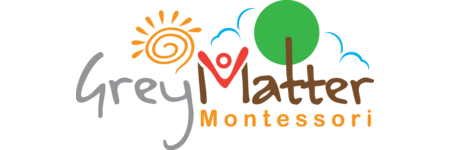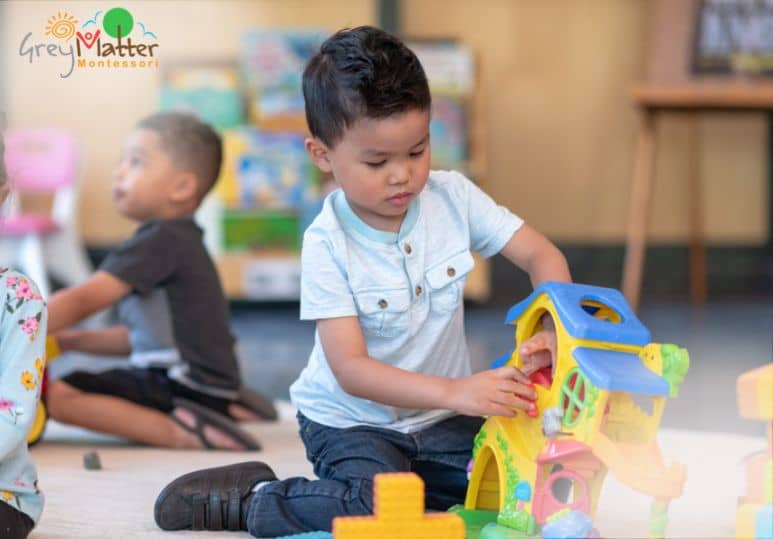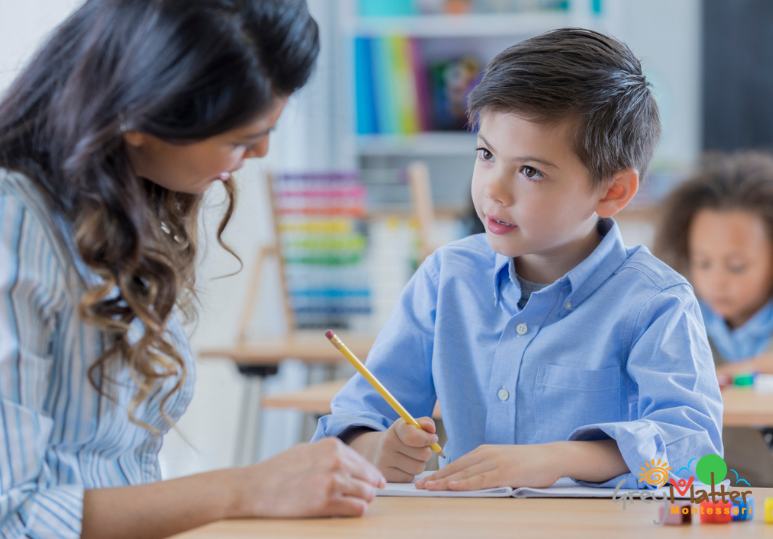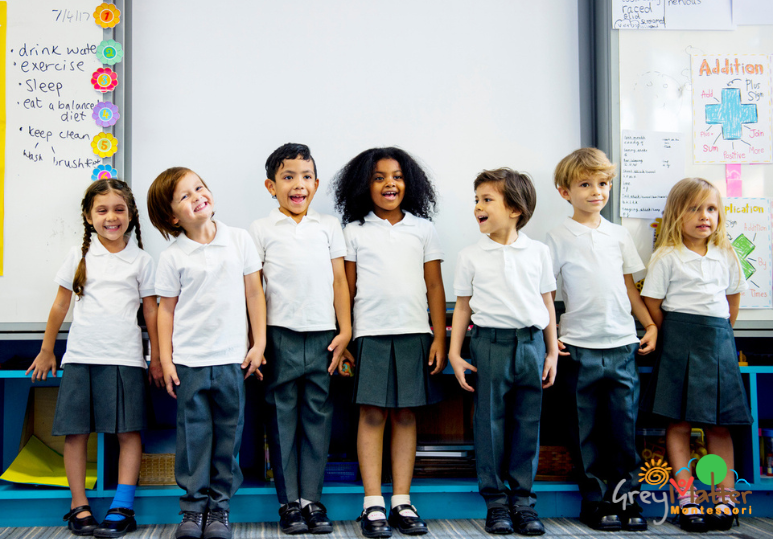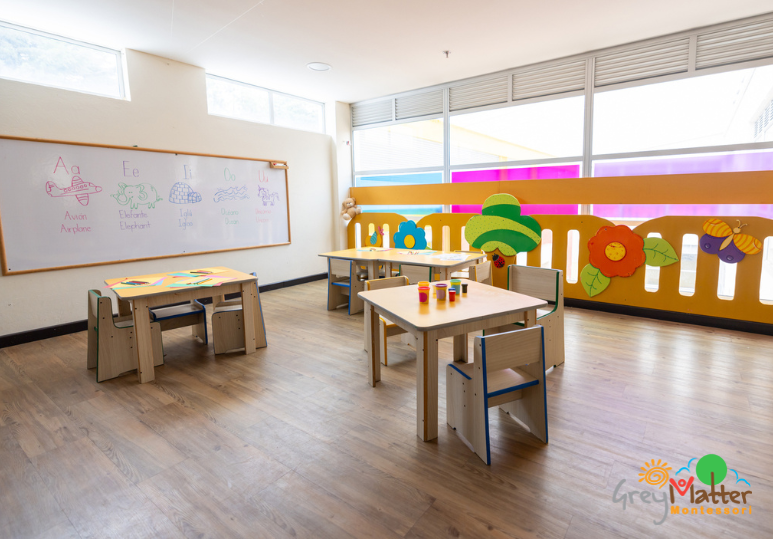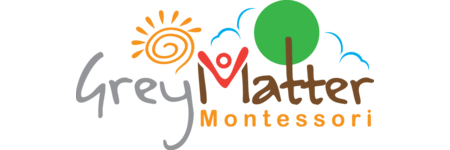Why An Early Introduction To Practical Life Skills Is Critical
One of the fundamental principles of Montessori education is the belief that children have an innate desire to become independent and capable individuals. In a Montessori preschool classroom, children are encouraged to take responsibility for their own self-care and contribute to the overall functioning of the classroom community. Practical life activities provide them with the opportunity to develop and refine their fine and gross motor skills, concentration, coordination, and order.
A Montessori preschool program promotes practical life skills learning in various ways. Here are some of the key approaches used:
- Purposeful Environment: Montessori classrooms are thoughtfully arranged to provide a child-centred environment. Child-sized furniture, shelves, and materials are easily accessible, encouraging independent exploration and engagement in practical life activities.
- Order and Structure: The classroom environment is organized and structured, with designated spaces for each activity. Children are introduced to a sequence of steps, which promotes order and consistency. This structure helps children develop a sense of responsibility and self-discipline.
- Real-Life Activities: Practical life activities in a Montessori preschool mirror real-life situations. Children engage in tasks like pouring, washing, sweeping, dressing, and food preparation. These activities are purposefully chosen to be relevant and meaningful to children's daily lives.
- Care of Self: Montessori preschools emphasize self-care skills. Children learn to dress themselves, tie their shoes, wash their hands, and use the washroom independently. These activities promote personal hygiene, build self-confidence, and foster a sense of responsibility for one's own well-being.
- Care of the Environment: Montessori classrooms teach children to respect and care for their environment. Children learn to clean up after themselves, maintain order in their workspaces, water plants, and care for classroom materials. These activities cultivate a sense of responsibility and environmental stewardship.
- Fine and Gross Motor Skill Development: Practical life activities in Montessori preschools support the development of fine and gross motor skills. Children practice pouring liquids, using tongs or tweezers, buttoning and zipping clothes, and manipulating small objects. These activities enhance hand-eye coordination, manual dexterity, and muscle control.
- Focus and Concentration: The repetition and precision required in practical life activities foster concentration skills. Children learn to focus their attention on a task, leading to improved concentration and attention span, which are essential for future learning.
- Independence and Autonomy: Practical life activities promote independence and autonomy. Montessori preschools encourage children to choose and carry out activities independently, allowing them to take ownership of their learning and build self-confidence.
- Social Skills and Graceful Movements: Practical life activities provide opportunities for children to practice social skills and develop graceful movements. Children learn to take turns, work collaboratively, and interact respectfully with peers and teachers. They also refine their movements and develop coordination and balance.
- Integration with Curriculum: Practical life skills are integrated into the broader curriculum in Montessori preschools. For example, language and math activities incorporate practical life elements, such as writing and counting materials, to reinforce skills in a practical context.
Practical Life Skills In A Montessori Preschool
By incorporating practical life activities into their curriculum, Montessori preschool programs create an environment where children can develop independence, responsibility, concentration, and essential life skills that will serve them well throughout their lives.
If you are interested in learning more about your options for preschool programs and the benefits of a Montessori Preschool, or for more information on Grey Matter Montessori preschool registration, contact us to book a time for a school tour at our NW Calgary location. We are accessible just off of Symons Valley Parkway in the NW community of Evanston. Call us for more info on our Calgary Montessori preschool programming at 587-707-4739.
If you are considering Grey Matter Montessori,
you are welcome to explore our campus with this virtual tour.
FAQ
Q: Is there a checklist of things my child must know before attending preschool?
A: At Grey Matter Montessori in Calgary, we value the differences that make each child unique. If your child is aged 3-6 they may be ready to begin to explore learning and we are ready to facilitate it. Learn more about exploring your child’s readiness for preschool here.
Q: Is it worth sending my child to preschool?
A: When it comes to deciding whether it would be worthwhile to send your preschool-aged child to preschool depends on a number of factors. To know if your child is ready for preschool, there are questions that you need to ask that only you, as a parent, know the answer to.
Q: How do Montessori preschools ensure that practical life skills learning is integrated into the curriculum?
A: Montessori preschools carefully integrate practical life skills learning into their curriculum. The classroom environment is thoughtfully prepared, with child-sized furniture, accessible materials, and a structured layout. Practical life activities are introduced in a step-by-step manner, allowing children to observe and imitate before engaging independently. These activities are purposefully chosen to reflect real-life situations and are integrated into various aspects of the curriculum, such as language, math, and social activities. By seamlessly incorporating practical life skills throughout the day, Montessori preschools ensure that children see the relevance and importance of these skills in their daily lives.
